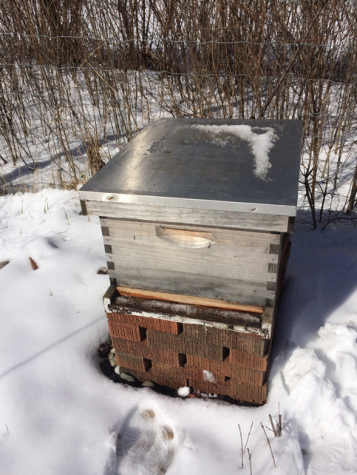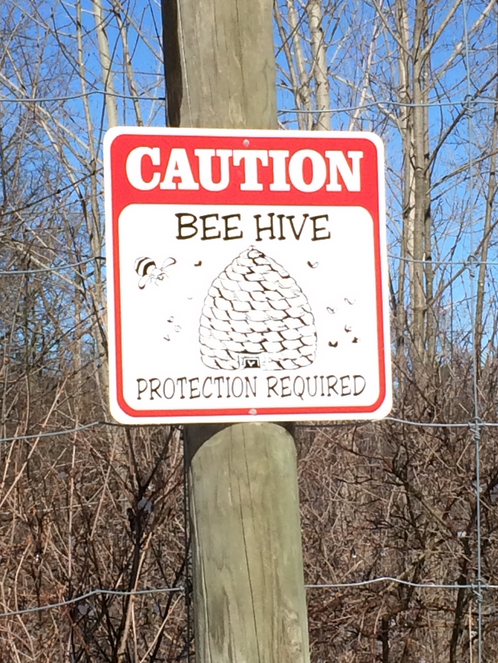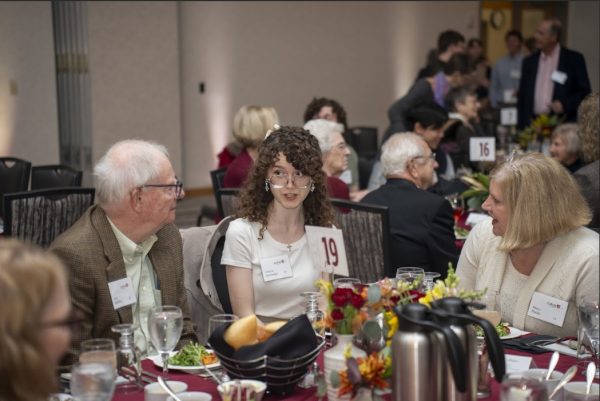Calvin’s beehives are entirely wiped out, but beekeeping will continue
The sign that warns people away from where the Calvin bees are kept. Currently it can be ignored, but new bees will be coming.
Opening the bee boxes in the Calvin community garden won’t result in an angry fury of bees trying to protect their queen, but only a quiet crunching of dead bees. During the winter of 2018-2019, every single bee at Calvin’s beekeeping project died.
Calvin’s beekeeping project is currently run by Jamie Skillen, professor of environmental science, and aided by veteran beekeeper Phillip Jasperse, the manager of the metal and woodshop in the Engineering Building. Jasperse, who has been keeping bees for around 15 years, explained what drew him to the hobby. “I enjoy it because they are so complex,” he said.
Calvin had three hives last year, all of which are now vacant. While losing bees is not uncommon in beekeeping, it still was a blow to those involved with the Calvin bees. “It hasn’t gone well for our bees,” said Skillen, reflecting on the winter’s losses. Jasperse suspects the first hive was probably overwhelmed with mites. The second hive lost their queen, causing order in the colony to collapse.
“The queen keeps the whole hive humming along, so to speak,” quipped Jasperse. He couldn’t determine the third hive’s cause of death but stated that he didn’t think the polar vortex was to blame, seeing as bees are capable of withstanding extreme cold.
Jasperse offered some insights into life inside the beehive. He explained that honey is harvested in the fall, but the beekeepers leave enough for the bees to eat during the winter, which is between 60-70 pounds. The other main food of bees is pollen.

One of the three hives that became vacant over the 2018-2019 winter.
While visitors to the community garden can currently ignore the “Caution: Beehive” sign because of the hive’s demise, live bees are not as frightening as they are commonly thought to be. Jasperse addressed the misconception that bees like to sting people.
“People really misunderstand bee stings,” he said. He explained that bees have no interest in actively seeking out targets to sting, because stinging someone ends a bee’s life.
Skillen talked about their educational value. Each year a group of students helps him take care of the bees.
“It’s a great way to learn about the intricacies of God’s creation,” he said, adding that while some students were already involved with the beekeeping operation on campus, he hoped that more would become involved as GEO club takes over the project next year. Skillen offered an optimistic outlook about the future of beekeeping at Calvin, despite the winter’s setbacks, and noted that three new hives are currently on their way to Calvin.









